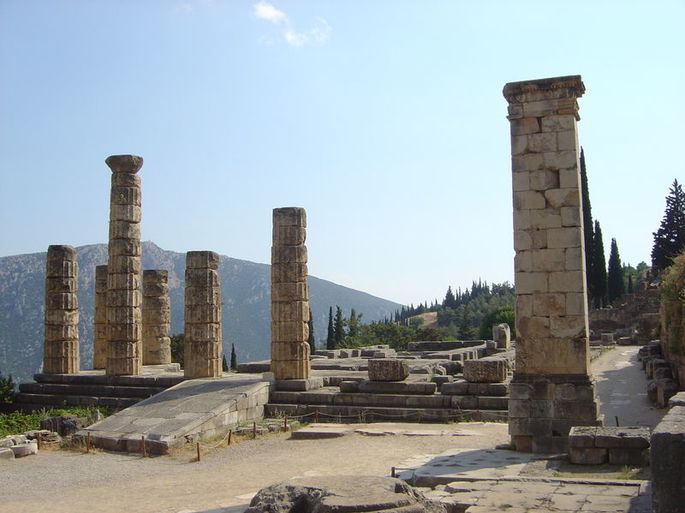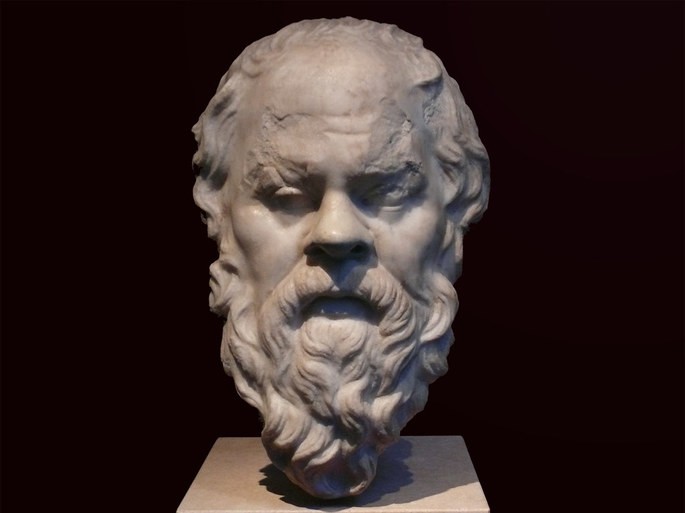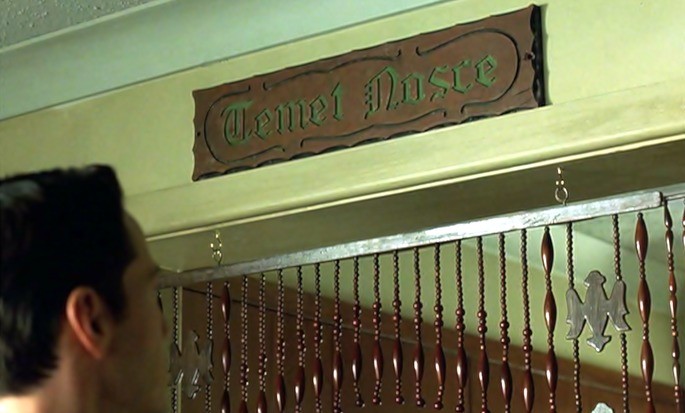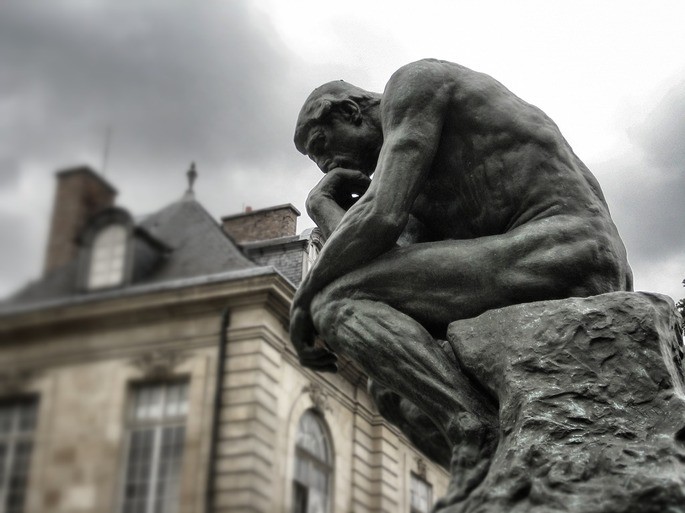One of the most famous aphorisms in history, ” know yourself “, was found in the entrance porch of the temple of the god Apollo, in the city of Delphi in Greece, in the 4th century BC. Ç.
Remember that an aphorism is a thought expressed briefly.
This phrase has been attributed to several Greek figures and does not have an author for sure. It is possible that it originated in a popular Greek saying.
Over time, this sentence has been appropriated by many authors, which has led to some variations. An example of this appropriation is its translation into Latin: nosce te ipsum and, also, temet nosce.
Anyway, the phrase was understood as an oracle (message from the god) of Apollo for all people.
Thus, the great task of humanity, according to the god Apollo, would be to seek knowledge of oneself and, from there, to know the truth about the world.
The god Apollo was known to be the god of beauty, perfection and reason. For this reason, he was one of the most worshiped gods in Ancient Greece.
The reason, related to Apollo, was paramount for the development of philosophy. The reflective character of philosophy and the search for knowledge and truth find Apollo a reference.
Know yourself and Socrates
The philosopher Socrates (c. 469-399 BC) is the one who made this link between god and nascent philosophy more evident.
It was Kerophon, his friend, who on a visit to the oracle at Delphi, asked the pythoness (priestess who receives the message from the gods and transmits it to mortals) if there was anyone in the world wiser than Socrates. The oracle’s answer was negative, there was no one wiser than Socrates.
Upon receiving this message from Querofonte when he returned to Athens, Socrates spent his life trying to contest the oracle.
The philosopher did not understand how he could be understood as the wisest. He thought he had no knowledge.
The philosopher considered himself just an ordinary person with the difficult purpose of seeking true knowledge.
This challenge would have led Socrates to utter the famous phrase:
I only know that I know nothing.
Intrigued by the oracle’s message, the philosopher sought out all the wise men of Athens so that they could show him what knowledge was.
Socrates asked them questions on moral issues such as virtue, courage and justice, in the hope that these people, recognized for their wisdom, could help him in the search for the truth.
However, he felt frustrated when he realized that these Greek authorities had a partial view of reality, being able, only, to give examples of someone virtuous, courageous or just.
From these encounters, Socrates realized that these sages were nothing but people with a misinterpretation of knowledge, full of prejudices and false certainties.
The philosopher understood that the message of the oracle concerned the fact that he has a self-knowledge and understands his own ignorance, making him wiser than the others.

Socrates gives rise to the anthropological period of Greek philosophy. That is, from the idea that self-knowledge, the knowledge of oneself, is the basis for all other knowledge about the world.
This sentence makes a reference to the oracle and its inscription “know yourself”. Self-knowledge and awareness of one’s own ignorance are the basis of the Socratic method.
Only after abandoning their prejudices that the subject is able to seek true knowledge.
Know yourself and philosophy

Philosophy is born from reflection, that is, from looking inside. It is necessary to reflect on what it really means to know something. From there, build bases for all types of knowledge.
The length of the sentence attributed to Socrates is known as:
Know yourself and you will know the universe and the gods.
Therefore, the engine of philosophy is the “know yourself” of knowledge itself, it is thinking towards you. Search in the understanding, the bases that base the knowledge.
Because of this, all areas of knowledge are also areas proper to philosophy and its object of study.
See also: The Origin of Philosophy
Know yourself, Cave Myth and Matrix
In the science fiction classic Matrix (1999), the script by sisters Lilly and Lana Wachowski is based on Plato’s Myth of the Cave.
In both stories, groups of human beings find themselves prisoners without being aware of it, because they live in a simulacrum of reality.
In Plato, the simulation of reality is given by the shadows projected at the bottom of the cave and taken as the whole of reality.
In the film, Matrix , the electromagnetic impulses are produced by machines and connected to the prisoners’ brains. This leads them to experience a sense of reality produced and controlled by computers.
In the Cave Myth, one of the prisoners questions his condition and finds ways to break free. Something similar occurs with Neo , the protagonist of the film. His performance as a hacker calls the attention of a resistance group that gives him the right to choose between the hostility of the real and the comfort of falsehood.
The similarities continue and the film’s directors explain this relationship in one of the scenes. Neo is going to consult an oracle. There, in a modern version of the temple of Apollo, the message temet nosce (“know yourself” in Latin) is read over the door , in a clear reference to the similarities between Neo and Socrates.

Like the ancient Greeks, Neo finds the oracle and receives an enigmatic message about destiny and the possibility, or not, of controlling his own life.
The central motto of both stories concerns the search for self-knowledge. Thereafter, the individual frees himself from oppression and control of what is false to understand what, in fact, is real.
See also: Cave Myth
Self-awareness

The question “who am I?” or “who are we?” it is one of the primary, metaphysical questions that gave a starting point for philosophy and the entire production of knowledge. The “us and the universe” is the goal of knowledge that drives the production of science in the world every day.
Chemistry, physics, medicine, psychology, sociology, history and all the other sciences, each in its own way, have in common the proposal inscribed in the temple of Apollo.
Although the definitive answer to this question has not been reached, his search and the need to know himself, build and modify the way of thinking and understanding reality.
In other words, the search for knowledge, from the ancient Greeks to space probes or the decoding of the human genome, addresses the question of “know yourself”.
